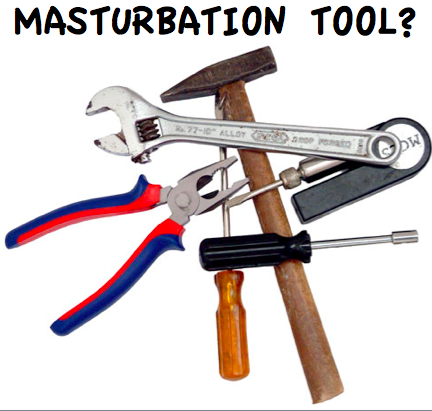“In my sex life, I’ve just been a tool for men's masturbation.”
A woman in her mid-20s said this to me. She said that she and another female friend had realized this harsh reality about their sex lives. And they weren’t pleased with this realization.
 What does this mean – “a masturbation tool for men”? To me it means being sexually passive. It means women not knowing and owning their sexuality. It may mean men acting out what they’ve watched in porn… and women feeling like they are only there for men’s pleasure. It sounds like it’s based on fear, embarrassment, performance-focus, and disconnect.
What does this mean – “a masturbation tool for men”? To me it means being sexually passive. It means women not knowing and owning their sexuality. It may mean men acting out what they’ve watched in porn… and women feeling like they are only there for men’s pleasure. It sounds like it’s based on fear, embarrassment, performance-focus, and disconnect.
What it DOESN’T mean is good sex. And for the woman I spoke to, it doesn’t mean self-respect. This unfortunately isn’t a simple topic to tackle, as it involves many layers of socialization, gender roles, fear, shame, culture, religion, assumptions, and miscommunication. I think it is complicated for both women and men.
What can you do if you find yourself in this passive “tool” role? Start by asking what you like or don’t like in sexual activity. If you don’t know, think about when you ever felt the most sexual excitement. Next, ask yourself why you have sex? Go beyond the obvious and consider more “uncomfortable” reasons, such as feeling validated, getting attention, obligation, or drunkenness. Another young woman shared with me that the main reason she had sex was because it was easier than saying no. This is pretty heavy. Do you think that your reasons for sex match with the reasons that your partners wanted sex? There’s likely a mismatch here.
Finally, take a big picture approach to determining how to move forward through this “tool” role, to one with more pleasure and ownership. Consider each of the following five categories and how you’d like to grow in each, as connected to your sex life: physical, mental, emotional, social, and spiritual. Every week, choose a different category and commit to exploring what you’ve written down. The most important component in this process is compassion for yourself. Walking through these steps doesn’t mean that anything is wrong with you; it just means that you’re open to growing and embracing this valuable process.










































